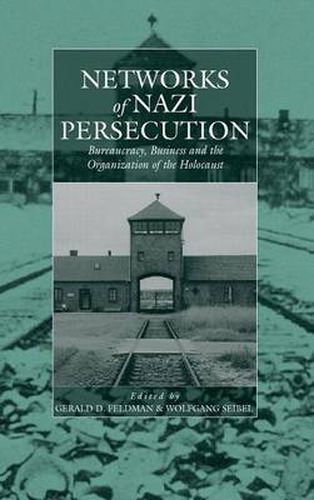Readings Newsletter
Become a Readings Member to make your shopping experience even easier.
Sign in or sign up for free!
You’re not far away from qualifying for FREE standard shipping within Australia
You’ve qualified for FREE standard shipping within Australia
The cart is loading…






This title is printed to order. This book may have been self-published. If so, we cannot guarantee the quality of the content. In the main most books will have gone through the editing process however some may not. We therefore suggest that you be aware of this before ordering this book. If in doubt check either the author or publisher’s details as we are unable to accept any returns unless they are faulty. Please contact us if you have any questions.
The persecution and mass-murder of the Jews during World War II would not have been possible without the modern organization of division of labor. Moreover, the perpetrators were dependent on human and organizational resources they could not always control by hierarchy and coercion. Instead, the persecution of the Jews was based, to a large extent, on a web of inter-organizational relations encompassing a broad variety of non-hierarchical cooperation as well as rivalry and competition. Based on newly accessible government and corporate archives, this volume combines fresh evidence with an interpretation of the governance of persecution, presented by prominent historians and social scientists.
$9.00 standard shipping within Australia
FREE standard shipping within Australia for orders over $100.00
Express & International shipping calculated at checkout
This title is printed to order. This book may have been self-published. If so, we cannot guarantee the quality of the content. In the main most books will have gone through the editing process however some may not. We therefore suggest that you be aware of this before ordering this book. If in doubt check either the author or publisher’s details as we are unable to accept any returns unless they are faulty. Please contact us if you have any questions.
The persecution and mass-murder of the Jews during World War II would not have been possible without the modern organization of division of labor. Moreover, the perpetrators were dependent on human and organizational resources they could not always control by hierarchy and coercion. Instead, the persecution of the Jews was based, to a large extent, on a web of inter-organizational relations encompassing a broad variety of non-hierarchical cooperation as well as rivalry and competition. Based on newly accessible government and corporate archives, this volume combines fresh evidence with an interpretation of the governance of persecution, presented by prominent historians and social scientists.